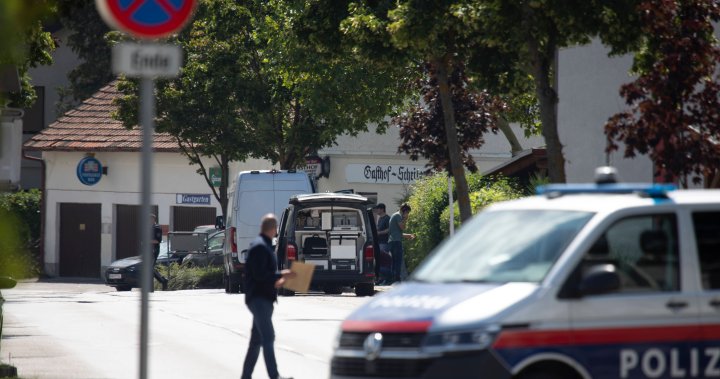The arrests of two Toronto men accused of plotting an attack for ISIS began with a tip from France, according to sources. French authorities informed Canada’s intelligence service about at least one of the suspects, leading to a joint investigation by the Canadian Security Intelligence Service and the RCMP. The father, Ahmed Fouad Mostafa Eldidi, 62, and son, Mostafa Eldidi, 26, were arrested on July 28 for allegedly planning a serious, violent attack in Toronto for the so-called Islamic State. They have been charged with terrorism, possession of weapons, and conspiracy to commit murder, although none of the allegations have been proven in court. The case has raised concerns about immigration security screening, particularly since the father was also charged with an ISIS-related aggravated assault that allegedly occurred abroad in 2015.
The charge against the father was reportedly related to an incident involving the mistreatment of a prisoner shown in a 2015 video where a man dismembered a prisoner with a sword. A similar video was released by the ISIS branch in Iraq in 2015, showing a man hacking the hands and feet off a man suspended from a pole. The Standing Committee on Public Safety and National Security has voted to call ministers to testify at hearings about the suspects’ immigration histories. Committee members aim to launch hearings promptly and summon the heads of the RCMP, CSIS, and Canada Border Services Agency as witnesses to address the alleged failings in immigration security screening. The elder Eldidi is now a Canadian citizen, while officials clarified that the son is not, though his actual citizenship status is unclear.
The specific target of the alleged terrorism plot in Toronto remains unknown, but the incident is a stark reminder that ISIS remains a threat even after their defeat in Syria in 2019. Another recent thwarted attack involved a 19-year-old ISIS supporter who planned to target a Taylor Swift concert in Vienna. European counter-terrorism authorities are currently responding to multiple threats from ISIS, some of which are centered around the 2024 Paris Olympics. Despite the continued threat, CSIS declined to comment on the alleged role of France in assisting Canada with stopping the Toronto plot. While the agency has partnerships with various domestic and foreign entities, they refrain from disclosing details to maintain the integrity of their operations.
The investigation that led to the arrests of the two Toronto men accused of plotting an ISIS attack was initiated through a tip from French authorities, highlighting the importance of international cooperation in combating terrorism threats. The father and son were apprehended in a hotel room north of Toronto while reportedly being in the advanced stages of planning a significant and violent attack. The charges leveled against them include terrorism, weapon possession, and conspiracy to commit murder for ISIS, although these allegations have yet to be proven in court. The case has brought into question the effectiveness of immigration security screenings, particularly given the father’s prior involvement in an ISIS-related aggravated assault that occurred outside Canada.
The allegedly disrupted terrorism plot in Toronto has spurred the Standing Committee on Public Safety and National Security to convene hearings to investigate the suspects’ immigration histories and potential lapses in screening procedures. While the target of the thwarted attack remains unknown, the incident serves as a reminder of the ongoing threat posed by ISIS. Recent disruptions of ISIS-related plots, such as the Vienna concert attack plan, underscore the need for continued vigilance and cooperation among global counter-terrorism authorities. Despite concerns regarding the suspects’ immigration status and the nature of the alleged plot, CSIS has refrained from commenting on the specifics of France’s involvement in assisting Canada in preventing the attack. As the investigations and legal proceedings unfold, the case highlights the ongoing challenges and complexities of countering terrorist threats in an international context.


